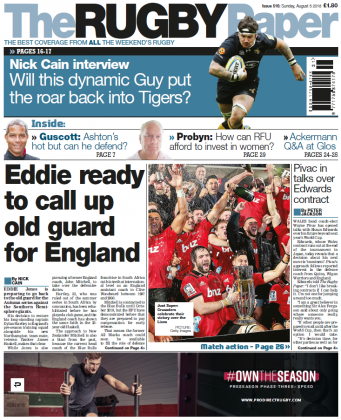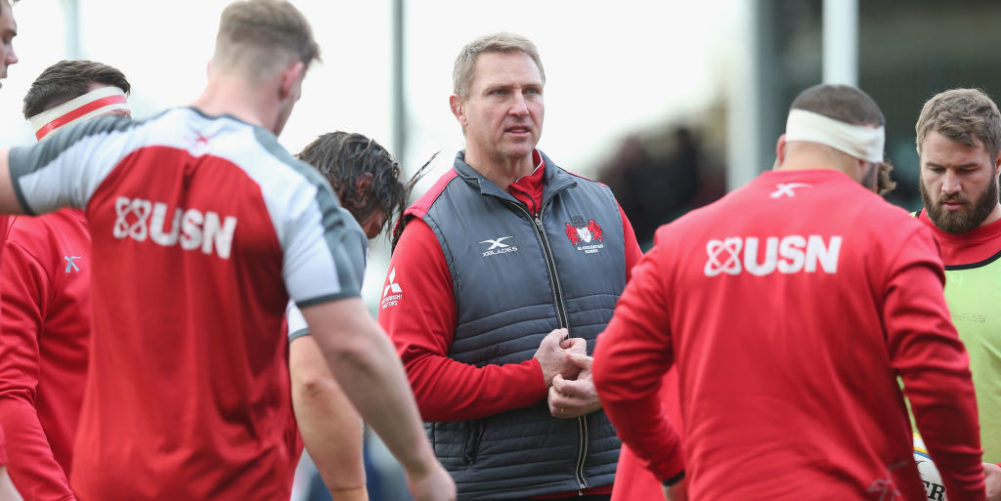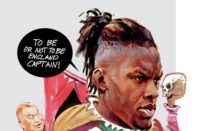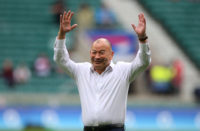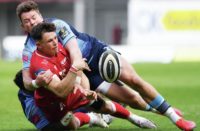Gloucester head coach Johan Ackermann tells NEALE HARVEY how he is tackling the task of bringing top silverware to the long-suffering Kingsholm faithful.
Enjoying having a full pre-season after coming in late from the Lions last year?
It’s been a great opportunity to spend time with the players, get to know some new ones and have academy players involved on a day-to-day basis. Last season I had a quick visit to the guys, shared a few ideas and then had a very short time to implement things after Super Rugby finished. Now we can trial and error stuff and the great thing is if there’s anything we want to change, we can do it there and then.
Any innovations as you plan for the season?
We didn’t feel we played to the full extent of how we wanted to play last season, so before we put another layer on it we still have to get to what I wanted to achieve. We laid foundations last season but feel we could have made them stronger, so that’s the main focus right now.
Can you summarise your playing philosophy?
Simple, we have to score tries! I want players to play with enjoyment and the only way you enjoy it is to get everyone involved from the front rows right through to the back three. I believe in playing an attractive brand of rugby that our supporters will look at and say it wasn’t just a scrum, kick and lineout event. Most of all I want a lot of commitment and if we can walk away knowing we gave that and played a positive brand of rugby, hopefully they will take it if a result or two doesn’t go your way. I don’t want us to be predictable, though, I want an all-round game.
Seventh in the Premiership, beaten by a point in the Challenge Cup final by Cardiff… what positives and negatives do you take from last season?
The biggest negative was the last three weeks! We gave ourselves an opportunity, there was a lot of growth and we went through a really rich spell where we played some very good rugby. But I don’t know if it was the pressure of realising post-Christmas that we were in a top four-hunting position, suddenly we started making errors. Growth-wise, we went from ninth to seventh and there were a lot of positive stats around line-breaks, offloads, metres made and tries scored, while we changed the mindset and showed a lot of intent, but then we overplayed and that’s what maybe cost us in the end.
Was discipline a concern too?
That was a big negative. In a lot of games – Northampton away, Newcastle at home and Wasps at home when we drew – we gave away far too many penalties. We were leading Wasps with two minutes to go, camped on their line, but then conceded a holding-on penalty and they went down the other end and scored. Then we had a yellow card in the Challenge Cup final against Cardiff at a crucial time, so we can massively step up our discipline. Also, we didn’t completely change the habit of not being able to win away so that’s another big work-on.
Just how brutal was it to lose those last three games – home to Bath (43-20), away at Saracens (62-12) and the European final against Cardiff (31-30) – after being in contention for silverware?
It was unforeseen, right out of the blindside. Sometimes you feel it when a team is off the pace and looking towards a summer break, but we had a lot to play for and even if we didn’t make the Premiership top four, just to get into the top six for the first time since 2013 and qualify for the Champions Cup on merit, rather than through the back gate, would have been good. That for me was a body blow, the fact that we didn’t do it and had to rely on other results.
The losses to Bath and Sarries hurt, but in the final against Cardiff we were so in control and played our best all-round rugby in the first 40 minutes. We had the balance between running, kicking and transferring pressure on to them just right, but then mentally we switched off. They scored a try straight after half-time, got their self-belief back and although there were decisions that went against us that looked harsh, we should never have let Cardiff back. You’re right, it was brutal.
Reflecting on your first year out of Super Rugby, can you compare its intensity with the Premiership and how did you rate the English league?
There’s no doubt Super Rugby is a class competition. It’s demanding with the travelling but it’s also a little bit faster than here in the north. But one thing the Northern Hemisphere sides can really use to their advantage to get the better of the Southern Hemisphere is it’s quite mentally tough. The level of this competition is over a longer time and if you don’t play Premiership you play European Games, so you can never take your foot off the pedal. To me it’s actually surprising that the likes of England are not up there with the best sometimes because the players must be used to taking pressure week-in, week-out. I believe even more that it was the right decision to come to England to experience it, enhance myself as a coach in different conditions and see the different culture of players.
Looking at Gloucester’s recruitment, you’ve gone for some heavyweight South African forward beef with some English flair behind your pack. What’s the rationale?
We looked at the age profile of our forward group and wanted to get some consistency there, so guys like Gerbrandt Grobler (26), Franco Mostert (27), Jaco Kriel (28), Franco Marais (25) and Ruan Dreyer (27) are people we feel can play at least three, four or five seasons here, while we’ve moved a few others on or they didn’t agree contracts. Some we replaced like-for-like but we also went for guys who we thought could contribute to the way we wanted to play. Then in the backs, we all know that Danny Cipriani is a guy who likes to play and can put guys into great positions. Matt Banahan was another great signing with his experience, bulk and all-round presence and he saw Gloucester as a place where he could enhance his rugby.
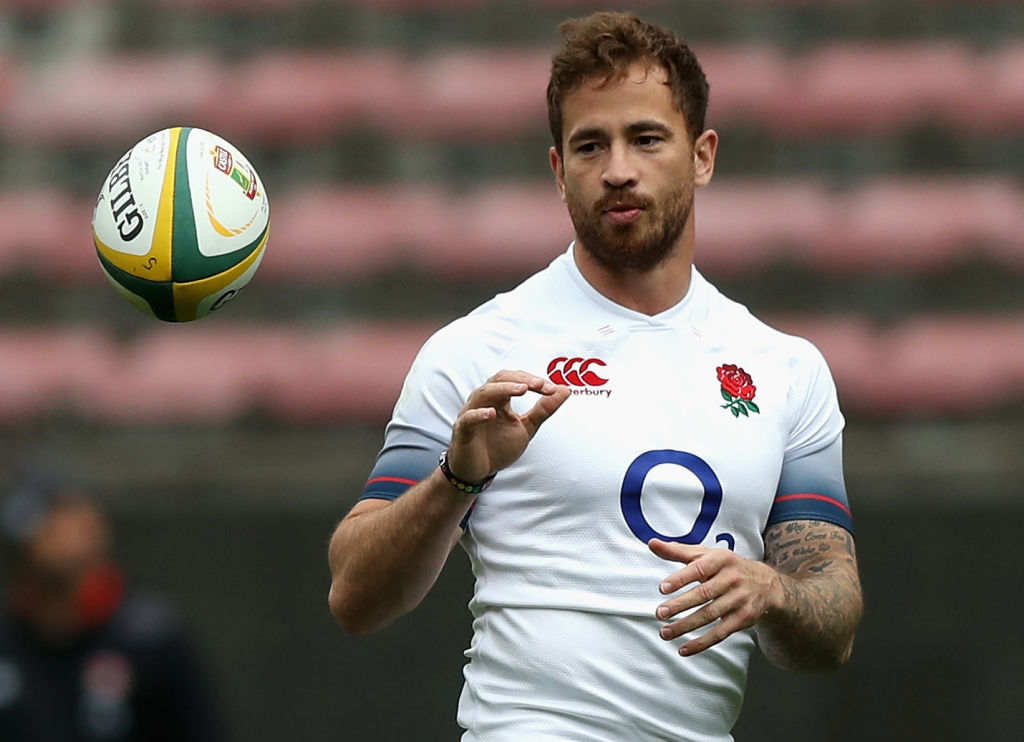
How did you manage to attract Cipriani?
It became clear that he wasn’t going to stay at Wasps and when we started to talk to his agent the reality was he still wanted to play at the World Cup – and for that he had to stay in England. I told him it was important for him to understand that there is competition in the group but if he’s hungry to succeed we are a club that’s got a desire to perform, get better and become more consistent. We believe he can be a big part of our change at Gloucester. We’ve changed the badge, the pitch, the coach and a few players, so it’s a great chance for him to be part of making Gloucester become successful.
The flipside is that Cipriani’s arrival, allied to the presence of Owen Williams, led Billy Burns to head for Ulster. Disappointed?
I am because it wasn’t originally foreseen that he would go. I do understand his point of view but I can never guarantee players games. All I could do with Billy was advise him that he knew what he’d get here – an environment he knows that has ambition – but only he could make a choice of where to play. I can never promise a player five, ten or 15 games so Billy was scared he wasn’t going to play a lot and that influenced his decision. It was logic that when he got the opportunity to play for Ulster, where he will probably be the starting No.10 and push hard for an Ireland place, he would take it. We didn’t want to prevent him from having the dream of an Ireland future so I wish him well.
Is Franco Mostert definitely coming? There have been a few murmurs about him staying in South Africa.
According to me he’s definitely coming! I’ve been in conversation with him over the last few weeks and there’s been no indication he’s not coming. We’re looking forward to seeing him but obviously he’s been playing too well because he’s been heavily involved with the Springboks.
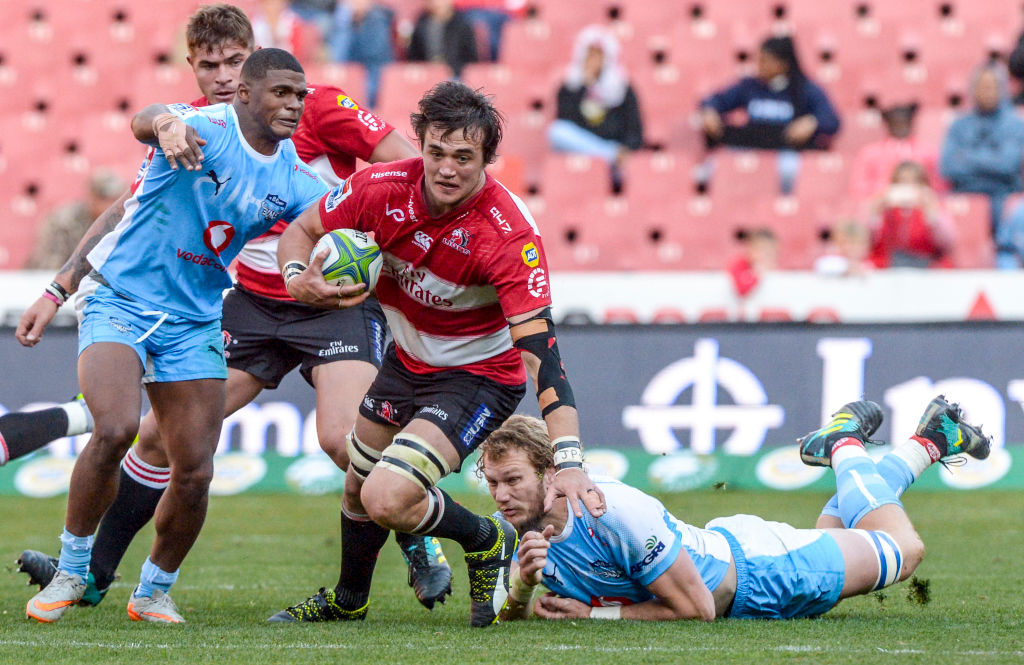
Grobler obviously had his drugs issue a few years back… is it a clean slate for him now?
It’s water under the bridge. It’s a mistake he made, he paid his dues and funnily enough he’s the first guy who got tested when he arrived! The testers are certainly not going to leave him out but he must get on with his career and we’ll back him and give him the platform to perform because he’s a very talented player. He’s a strong boy mentally and to get through that suspension you have to believe in your potential.
Your old club, the Lions, reached another Super Rugby final. Proud that your culture survived?
Extremely proud. I’m always asked if there’ll be any regrets if they lift a trophy, but not at all because they’d deserve it. To play three straight years in the Super Rugby final you have to be doing something right and they’ve backed up the new coach, Swys de Bruin. I remember when we were at the Lions in 2011, 2012 and 2013 and no kids would want to join us because things were so bad. But that’s all changed and they have great young players coming through now, which I’m tremendously proud of.
Do you ever reflect that had you stayed at the Lions you might have been South Africa’s head coach now?
No. During 2017 when Allister Coetzee was being heavily criticised after the loss to Italy and other bad results, there was a whole period from December to March before I made my decision to come to Gloucester and there was already talk of Rassie Erasmus taking over. My phone didn’t ring once, nor did I get a message to ask whether it was something I’d consider, even as an assistant. I had no communication with anyone from SA Rugby and could only make decisions around what was on the table, which was stay with the Lions or go to Gloucester.
How do you rate the job Rassie’s done so far?
Wherever he’s been he’s made a difference. I played with Rassie and he was the first guy, along with Victor Matfield, who would sit for hours behind the old video machine and analyse teams and tactics. He was ahead of his time and he proves it wherever he goes. He immediately gets improvement in performance and we saw it again with the Springboks beating England. Rassie’s managed to get the protocols changed so he can select anybody and, whilst only time will tell, there’s no reason why we can’t perform well in the Rugby Championship against the All Blacks. He’s getting the best players again, which is great news for the World Cup.
If ever it came, would you relish a crack at the Springboks job one day?
Being honest, yes. South Africa’s obviously close to your heart and when you’ve played for your country, as I have, you would always be interested if the opportunity ever presented itself. You always aspire to play at the highest level and it’s no different as a coach. Whether it’s with South Africa or another team, coaching at international level is something I’d love to do one day.
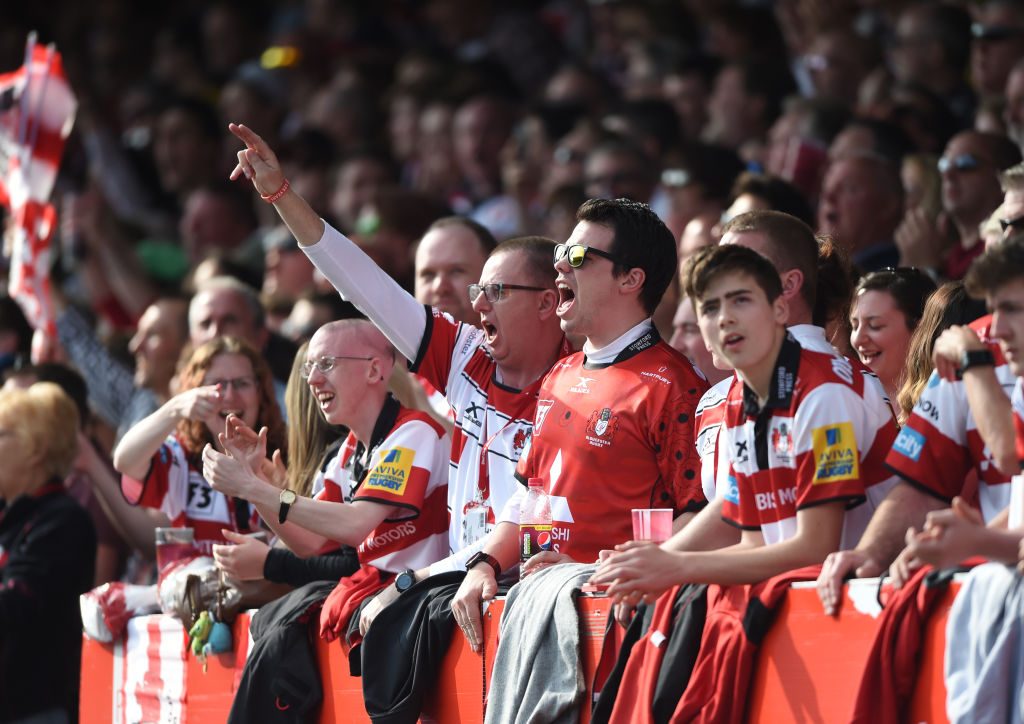
Back to Gloucester, what type of culture are you trying to create?
A culture of unity. I want players to walk away from Gloucester thinking, ‘I worked hard, we had tough times, but I made lifetime mates and we were committed to the cause and came through’. That can only be done if you create an environment where players are treated with respect but also respect each other.
Looking around the league, would you say Exeter and Saracens are the cultural market leaders?
No doubt. Speaking to guys like Schalk Burger, Schalk Brits, Michael Rhodes and Bradley Barritt at Saracens, you get the feeling that’s why they perform – and it’s the same at Exeter. Then again, the secret of these two teams as well is their squads don’t change much and neither does their management. If you’re going to chop and change the coach every second year and make 10-15 changes in your squad, I doubt any culture will get into you. Self-belief grows from stability, especially if you start being successful.
You’ve brought in a few South Africans, but are you still committed to Gloucester’s academy?
I’m hoping they’ll get a chance and show me what they can do. There are four or five guys I’ve spoken to and told them I want them to challenge for starting positions. If they tag themselves as academy players it’s their fault, but I don’t want guys like Charlie Chapman, Henry Walker, Ciaran Knight, Alex Seville and others to stand back and give senior guys a free ride to their starting positions.
Aside from Cipriani, no other Gloucester player was named in the England training squad. That surely needs to change?
It would be great for Gloucester to have more people in there, but I always say to players they must realise it’s the team that’s going to get them there. If we don’t perform or are hanging around 10th place and not challenging for honours, we’re not doing individuals any favours. We have to perform well and then hopefully guys like Ben Vellacott, Jason Woodward, Henry Trinder and others can push through.
The Rugby Paper is on sale all year round! Keep abreast of your club’s activities in the off-season by subscribing: http://bit.ly/TRP-Sub
